The Art of Dying Well: A Reverent Exploration of Death and Christian Life
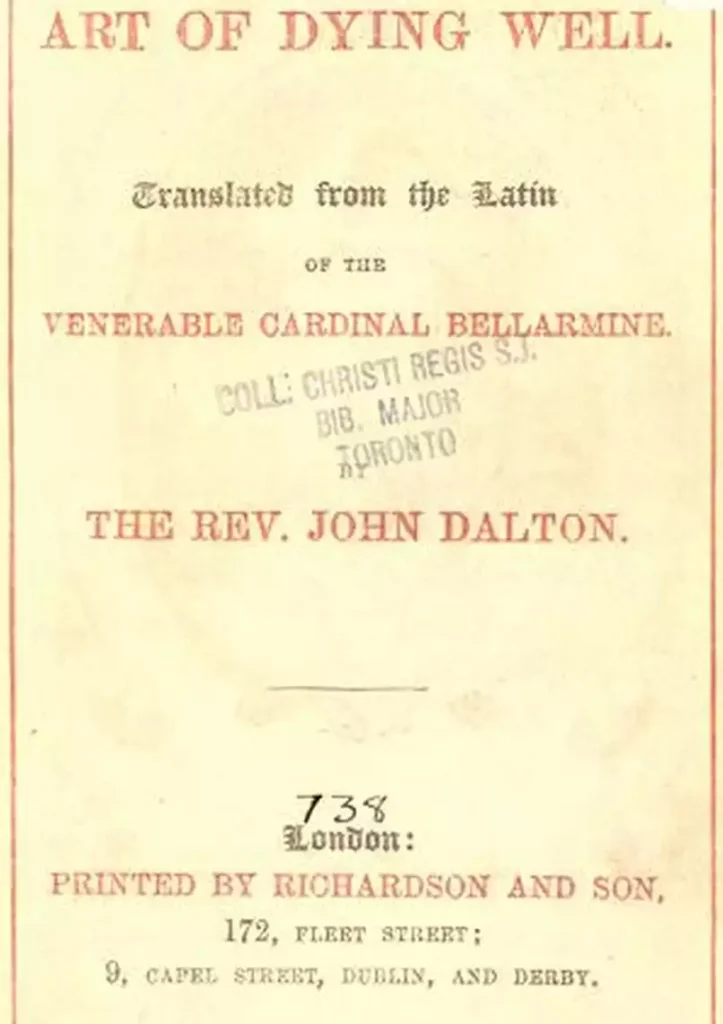
Cardinal Bellarmine, Roberto Francesco Romolo, Saint (1542-1621); Translated by Dalton, John – A 19th Century Guide to Spiritual Preparedness for Death “The Art of Dying Well,” originally authored by Saint Cardinal Roberto Francesco Romolo Bellarmine and translated by John Dalton in 1847, stands as a seminal work in Christian literature, addressing the often-taboo subject of […]
Liguori, Alphonso M. de, Saint: Preparation for Death
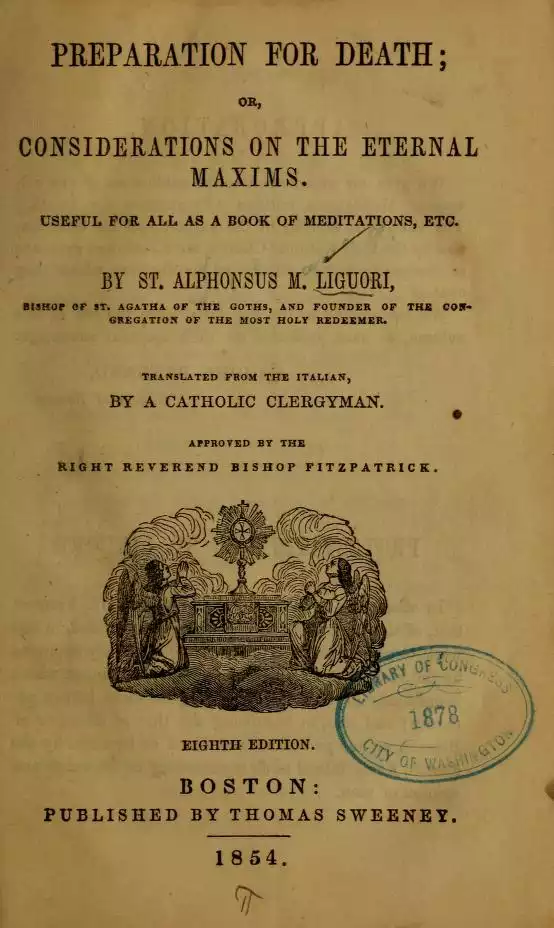
Insightful Analysis of ‘Preparation for Death’ and Its Timeless Wisdom “Preparation for Death; or, Considerations on the Eternal Maxims” by Saint Alphonso M. de Liguori, originally published in 1854, is a seminal work delving into Christian theology’s perspectives on mortality and the afterlife. Liguori, a renowned theologian, offers profound insights into the contemplation of death […]
Thaddaeus, Saint Apostle
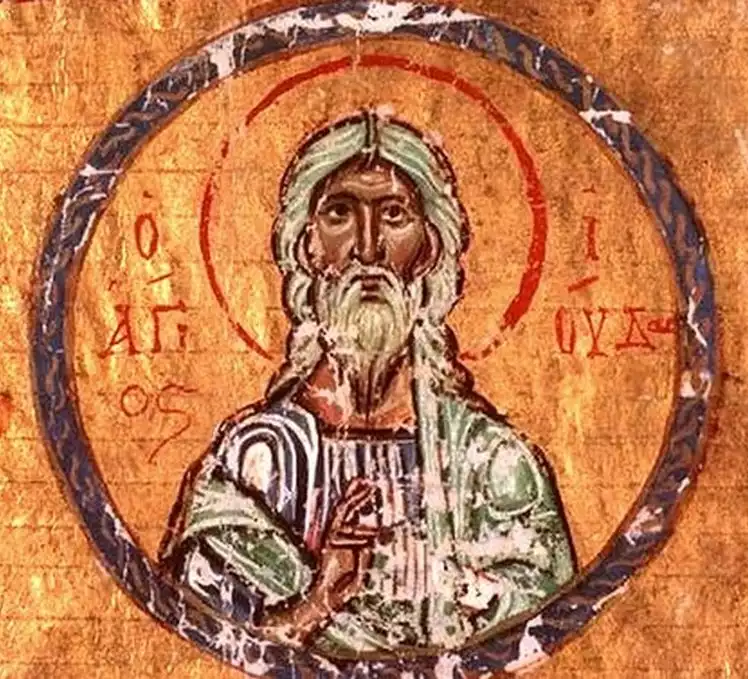
Saint Thaddaeus, one of the twelve apostles, holds a unique place in the tapestry of early Christian history. Despite the scarcity of detailed records about his life, including the specifics of his birth and death, Thaddaeus’ role as one of Jesus Christ’s chosen disciples underscores his integral contribution to the spread and establishment of Christian […]
Thomas, Saint Apostle | Intriguing Figure of Early Christianity
Thomas Apostle, also known as Didymus, remains an enigmatic yet pivotal figure in early Christian theology and history. His life, woven into the fabric of Christian narrative, spans the first century A.D., though precise dates of birth and death remain elusive. Thomas is best remembered for his skepticism upon hearing of Jesus Christ’s resurrection, a […]
Revelation, Book of | A Comprehensive Examination
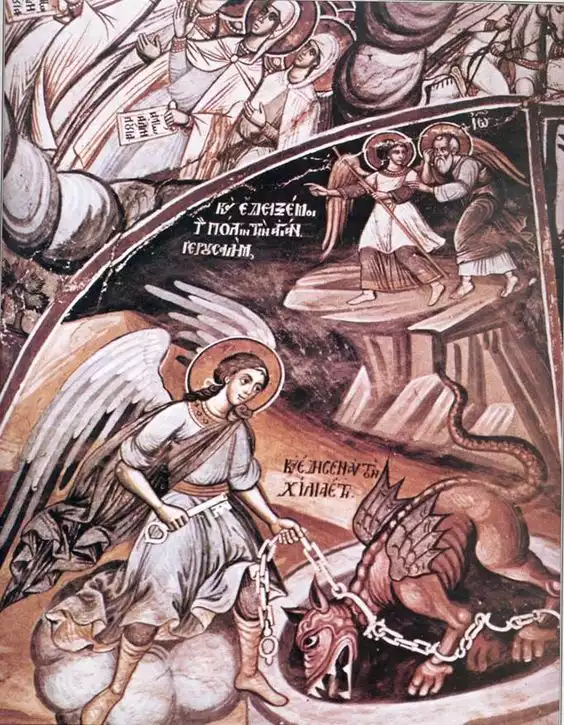
The Book of Revelation, often referred to simply as Revelation or the Apocalypse, is the final book of the New Testament and consequently the Christian Bible. Its authorship is traditionally ascribed to John of Patmos, an island in the Aegean Sea, around 95 AD, although precise dates of composition remain debated among scholars. Notably, Revelation […]
Gospel of Luke | Exploration and Interpretation
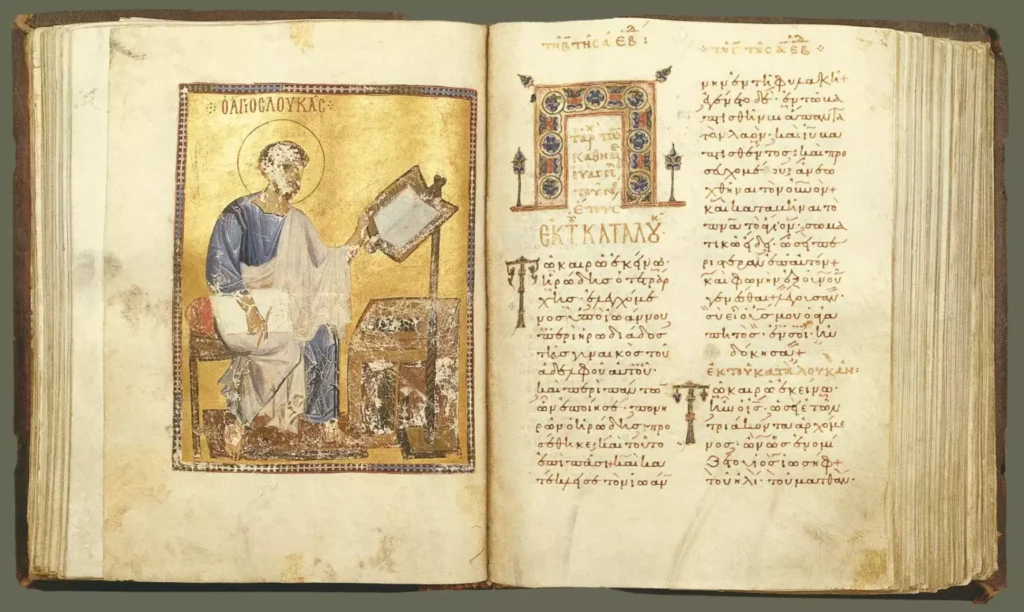
The Gospel of Luke, traditionally credited to Luke the Evangelist, stands as a pivotal text in the Christian New Testament. Its precise date of composition is debated, with estimates typically ranging from AD 60 to 110. Unlike other synoptic gospels, Luke offers a unique perspective on the life and teachings of Jesus Christ. The author’s […]
Gospel of Matthew | Historical and Theological Analysis
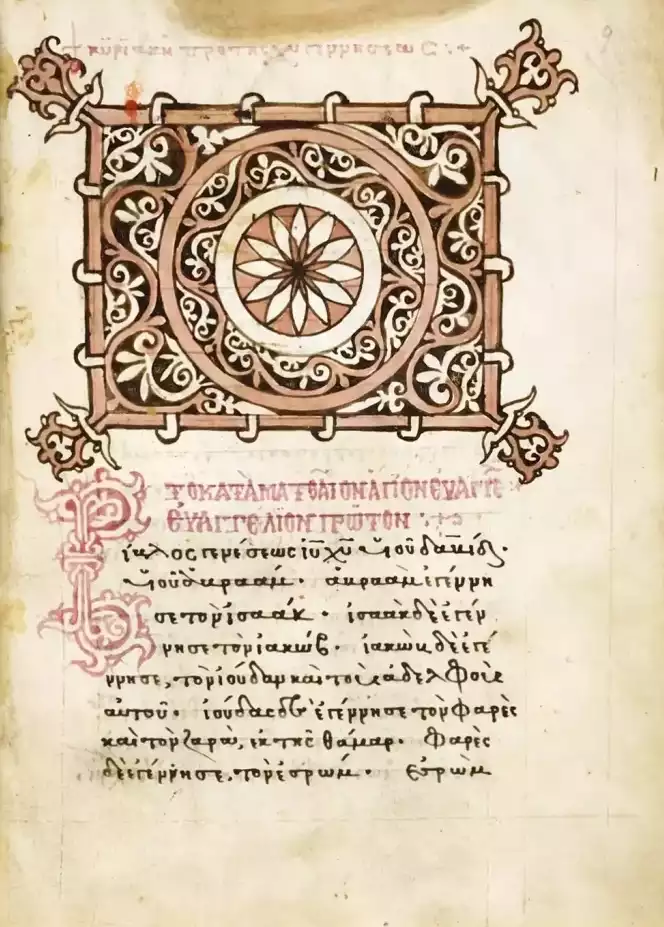
The Gospel of Matthew, a cornerstone of Christian scripture, is traditionally attributed to Matthew the Apostle, a former tax collector turned disciple of Jesus Christ. While the precise dates of its composition remain debated, scholars generally agree that it was written between 80 and 90 AD. Unlike other synoptic gospels, Matthew uniquely intertwines Jesus’ teachings […]
New Testament | Historical and Theological Significance

The New Testament, forming the cornerstone of Christian theology, is a revered collection of texts that meticulously chronicle the life, teachings, death, and resurrection of Jesus Christ. Beyond these historical accounts, it also includes profound writings that thoughtfully elaborate on Christian doctrine and the formation of the early Church. Comprising 27 books, the New Testament […]
John the Theologian, Saint | Evangelist
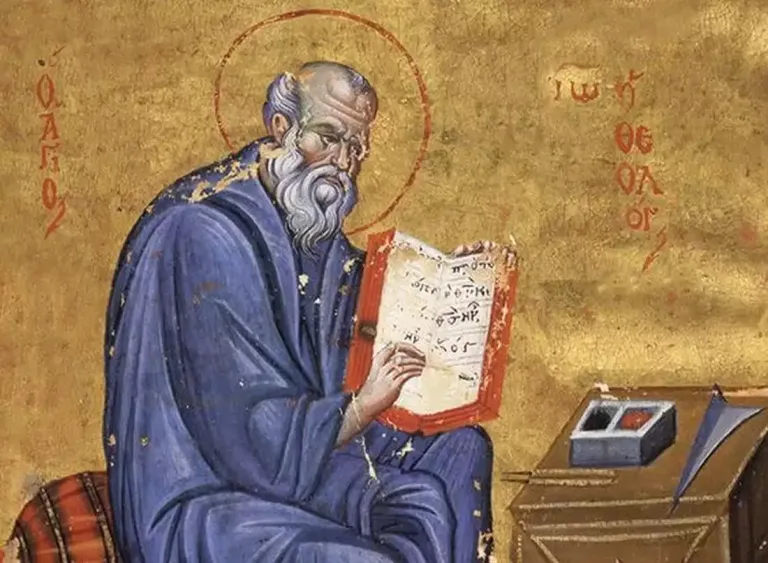
Saint John the Evangelist, traditionally believed to be the author of the Gospel of John, was a prominent figure in early Christianity. His life, spanning from around AD 6 to 100, marks a significant era in Christian history. A disciple of Jesus Christ, John’s contributions extend beyond the authorship of the Gospel; he is also […]
Luke, Saint | Evangelist
Saint Luke, renowned as the author of the Gospel of Luke and the Acts of the Apostles, holds a pivotal position in early Christian literature. His exact birth and death dates remain uncertain, but his works are widely recognized as key texts in the New Testament. Luke’s Gospel uniquely highlights Christ’s compassion, while the Acts […]
Joseph, Saint | Earthly Father of Jesus
Saint Joseph, traditionally celebrated as the earthly father of Jesus Christ, holds a pivotal role in Christian theology and history. His life, primarily documented in the Gospels of Matthew and Luke, provides insight into the early years of Jesus. The exact dates of Joseph’s birth and death are not historically recorded, but his life is […]
John the Baptist
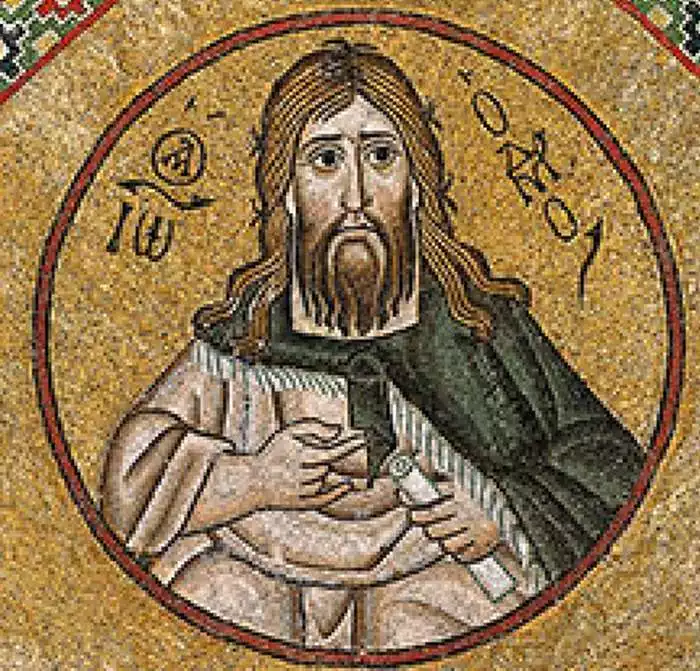
John the Baptist, born in the late 1st century BC and martyred circa 30 AD, remains a pivotal figure in Christian theology and history. Revered for his ascetic lifestyle and prophetic ministry, he is primarily recognized for heralding the arrival of Jesus Christ and administering His baptism. John’s profound impact on religious thought extends beyond […]
Ecumenical Patriarchate | An Overview of Its Significance and History

The Ecumenical Patriarchate, a pivotal institution in Orthodox Christianity, has been a beacon of spiritual leadership and theological wisdom for centuries. Originating from the ancient city of Byzantium, later known as Constantinople and now Istanbul, this patriarchate holds a unique position in the Christian world, revered for its historical depth and doctrinal authority. The term […]
Catechism in Christian Churches | A Comprehensive Overview
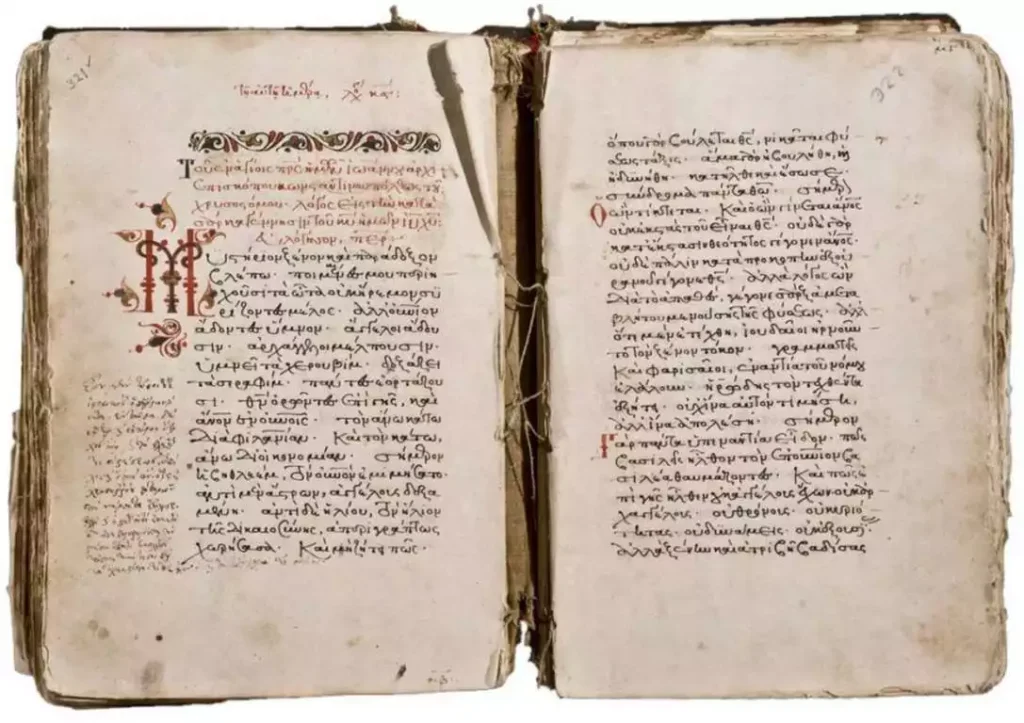
Catechism, a term deeply ingrained in Christian tradition, originates from the Greek word ‘katecheo’ meaning ‘to teach orally.’ This practice, pivotal in Christian religious education, dates back to the early Church. It served as a structured method of imparting Christian doctrines, primarily to prepare catechumens (new converts) for baptism. The use of catechisms became more […]
Gregory of Narek, Saint | A Pioneering Armenian Mystic
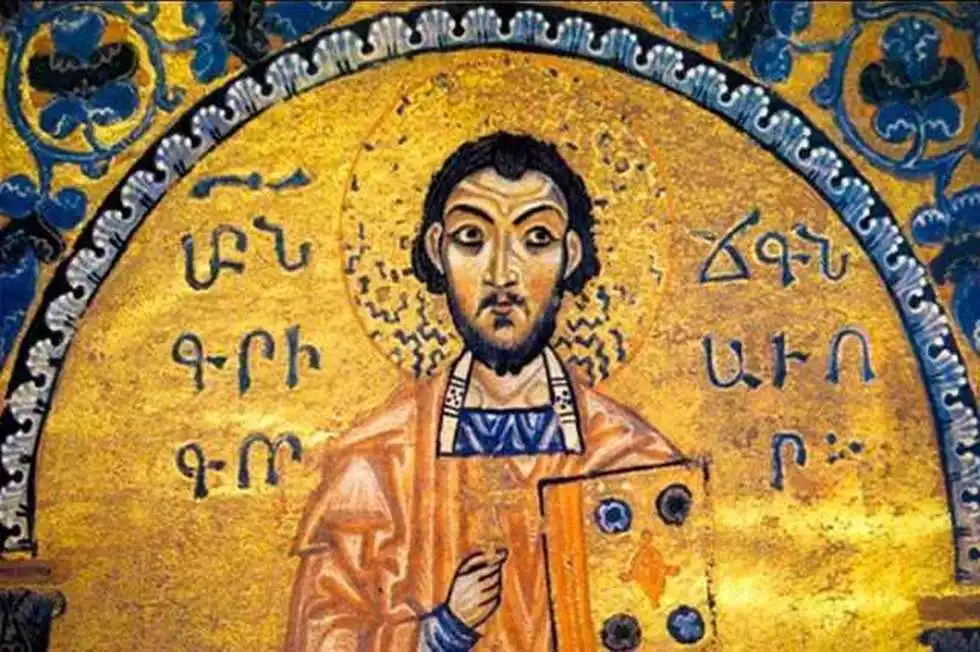
Saint Gregory of Narek, a prominent figure in medieval Armenian literature and theology, was born in 951 AD and passed away in 1003 AD. Esteemed as a mystic, poet, and theologian, Gregory’s profound influence extends beyond the borders of Armenia, earning him a revered place in Christian history. His works, characterized by deep spirituality and […]
Victorinus, Saint | Early Christian Theologian and Martyr
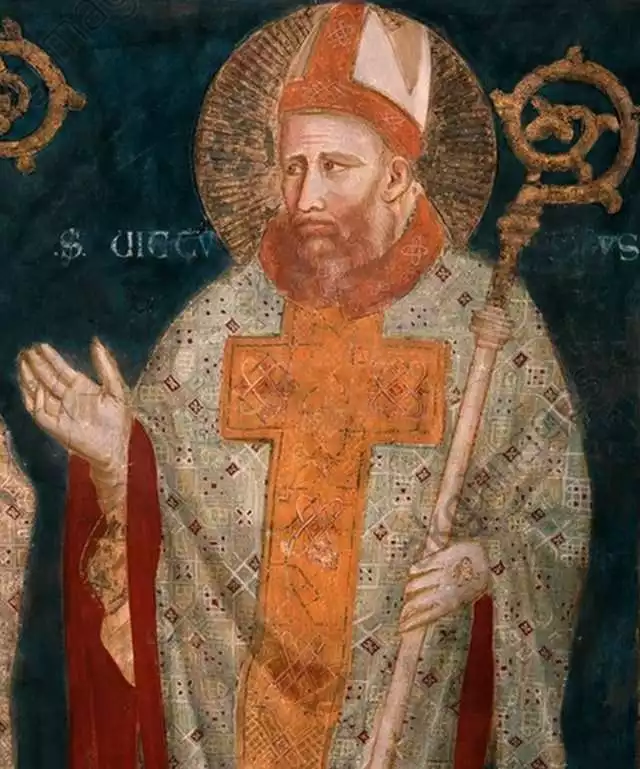
Saint Victorinus, a pivotal figure in early Christian theology, lived during the tumultuous era of the late 3rd and early 4th centuries. His contributions to Christian thought, particularly in the realm of eschatology, have left a lasting impact on the Church. Although the exact dates of his birth and death remain elusive, Saint Victorinus is […]
Codex Alexandrinus | A Pivotal Manuscript of Ancient Scripture
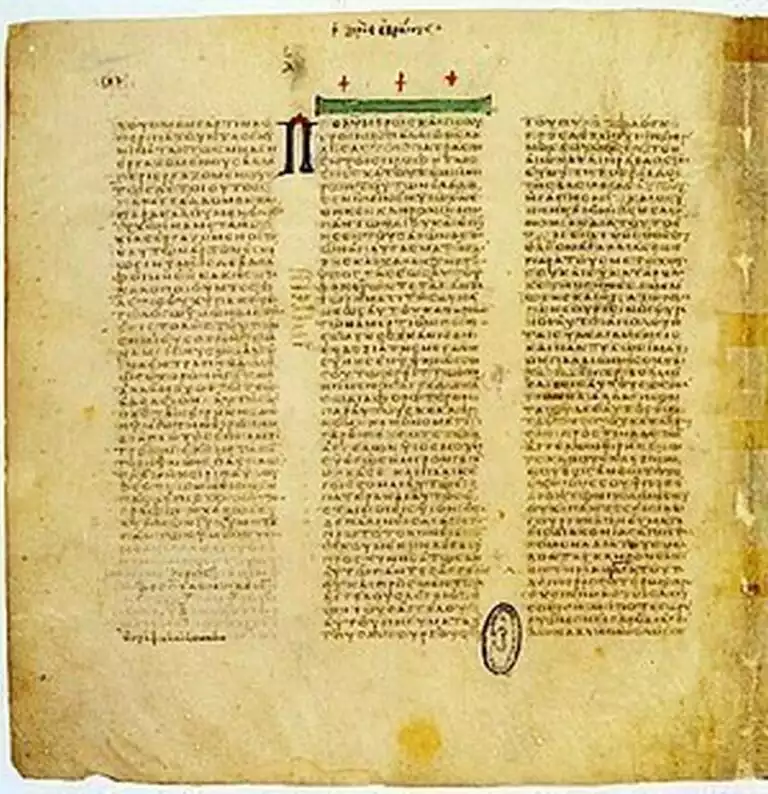
Codex Alexandrinus, one of the most significant ancient Greek manuscripts of the Bible, embodies a treasure of religious and historical scholarship. Comprising both the Old and New Testaments, this codex has been instrumental in biblical studies and textual criticism. Its origins trace back to the 5th century, making it a pivotal witness to the scriptural […]
Basil the Great, Saint
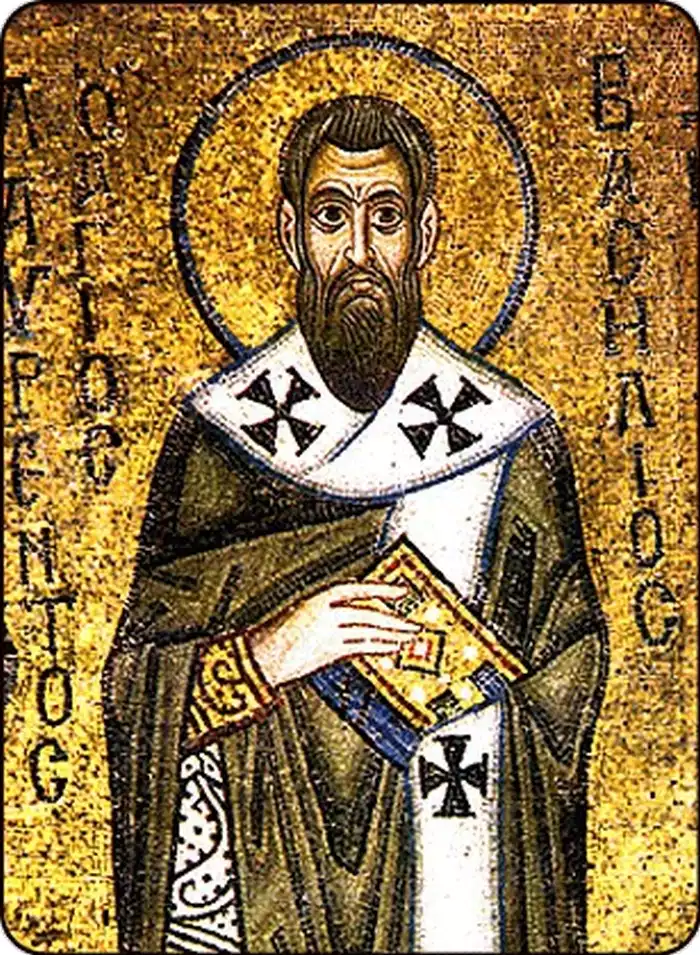
Saint Basil the Great (330-379 AD), renowned for his influential role in the development of early Christian monasticism and theology, remains a pivotal figure in the history of the Christian Church. Born into a family deeply rooted in Christian faith, Basil’s life and works spanned a period of significant religious and cultural transformation. His death […]
Circumcision of Jesus Christ | Symbolic Ritual and Its Theological Significance
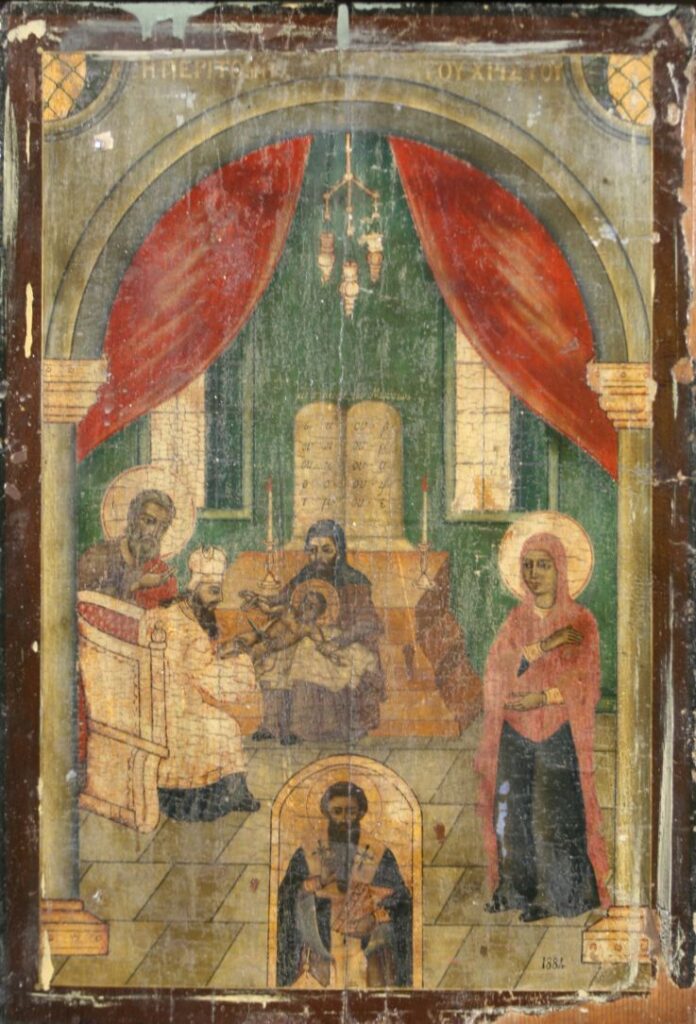
The Circumcision of Jesus Christ, observed annually on January 1st, represents a significant moment in Christian theology. This event, commemorating the physical circumcision of Christ on the eighth day after His birth, affirms the incarnation of God in human form and His entry into God’s covenant with humanity. The Circumcision of Jesus Christ is not […]
